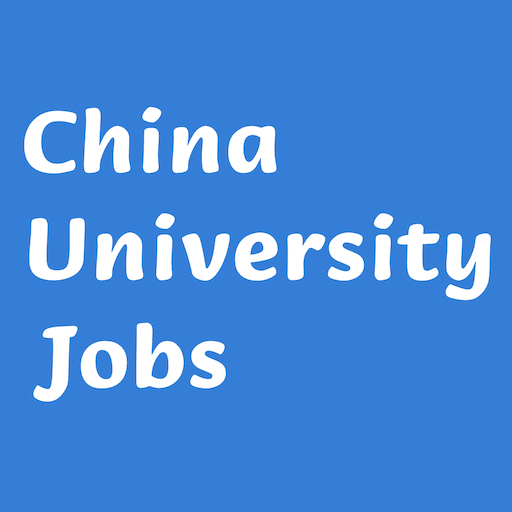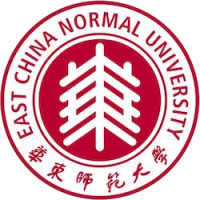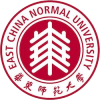About East China Normal University
East China Normal University is a comprehensive research university organized by the state, supervised by the Ministry of Education, and jointly built by the Ministry of Education and the Shanghai Municipal People’s Government. It was founded on October 16, 1951, on the site of Daxia University (1924) and Guanghua University (1925), with some departments of St. John’s University, Fudan University, Tongji University, and Zhejiang University transferred in. In 1978, the university was again recognized as a national key university, and in 1980, the name of East China Normal University was restored. 1986, the university was approved by the State Council as one of the 33 institutions of higher education to establish a graduate school, and in 1996, it was included in the “211 Project” national key universities. In 2002, according to the strategic plan of Shanghai’s university layout adjustment, the university started the planning and construction of Minhang campus, and in 2006, the main campus was moved to Minhang campus, forming a schooling pattern of “one university, two districts and linkage development”. In 2017, the university entered the ranks of national “985 Project” universities, and in 2017, it entered the ranks of national A-class universities for the construction of world-class universities, and started a new journey to build a first-class university in China.
Establishing moral and cultivating people, climbing high and going far. As the first socialist teacher training university in China, the university has always adhered to the lofty university ideal of “the creation of wisdom, the fusion of character, the development of the nation and society”, abided by the spirit of the school motto of “seeking truth and creation, serving as a teacher”, fully and deeply implemented the Party’s education policy and the various decisions and deployments, implemented the fundamental task of establishing moral education, educating people for the Party and the country, in accordance with the spirit of the 13th Party Congress of the university In accordance with the spirit of the 13th Party Congress, the 13th Five-Year Plan, and the construction goals and paths set by the World Class University Construction Plan, the university will continue to strengthen the strict governance of the Party, promote the whole staff, the whole process and the all-round education, focus on the implementation of education and teaching innovation, discipline research optimization and improvement, and the precise alignment with national strategies, and focus on “education +”, “ecology +”, “health +”, “intelligence +” and “international +”. +By 2020, the university will be a world-renowned high-level university with distinctive characteristics and outstanding advantages, by 2035 it will be close to the level of a world-class university, and by the middle of this century it will be a world-class university, making a new and greater contribution to the glorious cause of “building a strong country with education” and “strengthening the country with education” and the great rejuvenation of the Chinese nation!
The university currently has 4 departments: Earth Science, Education, Economics and Management, and Information Science; 30 full-time colleges: College of Humanities and Social Sciences (Department of Chinese Language and Literature, Department of History, Department of Philosophy, Department of Political Science), College of Foreign Languages, College of Communication, College of International Chinese Culture, College of Teacher Education, College of Psychology and Cognitive Science, College of Physical Education and Health, College of Marxism, College of Social Development, College of Law, College of Economics, and College of Social Sciences. College of Social Development, College of Law, College of Economics, College of Business Administration, College of Public Administration, College of Statistics, Asia-Europe Business School, College of Mathematical Sciences, College of Physical and Electronic Sciences, College of Chemical and Molecular Engineering, College of Life Sciences, College of Geographical Sciences, College of Urban and Regional Sciences, College of Ecological and Environmental Sciences, College of Marine Sciences, College of Computer Science and Technology, College of Software Engineering, College of Data College of Data Science and Engineering, College of Communication and Electronic Engineering, College of Music, College of Fine Arts, College of Design; 4 schools: Meng Xiancheng School, School of Economics and Management, Daxia School, Guanghua School; 3 physical research institutes: Simian Institute of Humanities, Institute of International Relations and Regional Development, Institute of Estuarine and Coastal Sciences; 12 university-managed research platforms (including 2 State Key Laboratories): State Key Laboratory of Estuarine State Key Laboratory of Coastal Science, State Key Laboratory of Precision Spectroscopy Science and Technology, National Institute of Education Macro Policy, Shanghai Institute of Lifelong Education, Chongming Institute of Ecology, Institute of Urban Development, Institute of “Smart+”, Joint Institute of Translational Science and Technology, Institute of Brain Science and Educational Innovation, Institute of Medicine and Health, Institute of Socialist History and Literature, Shanghai Institute of Intelligent Education The Institute of Open Education/Shanghai Institute of Teacher Development and the Institute of Innovation and Entrepreneurship are two management-oriented institutes. There is also a Training Center for Secondary School Principals of the Ministry of Education located at the school.
As of March 2021, the university has 30 first-level disciplines authorized for doctoral degrees, 35 first-level disciplines authorized for master’s degrees, 21 professional master’s degrees and doctoral degrees in education, 26 postdoctoral research stations, and 85 undergraduate majors. It has 2 national key disciplines of education and geography, 5 national secondary key disciplines, 5 national key cultivation disciplines, 12 A-class disciplines in the fourth round of discipline evaluation by the Ministry of Education, 6 Shanghai peak disciplines (2 in Class I, 2 in Class II and 2 in Class IV), 12 Shanghai key disciplines and 17 Shanghai first-class disciplines (4 in Class A and 13 in Class B). The university has 4,422 faculty members, including 2,379 full-time faculty members. There are 2,081 professors and other teachers with senior titles, including 18 academicians of the Chinese Academy of Sciences and the Chinese Academy of Engineering (including double-appointed academicians), and 288 candidates of various national and Shanghai talent programs. There are 15,543 full-time undergraduates, 3,334 doctoral students, 15,239 master’s students, and 1,355 international students (academic students). The main campuses are Minhang Campus (No. 500 Dongchuan Road, Shanghai) and Zhongshan North Road Campus (No. 3663 Zhongshan North Road, Shanghai), covering a total area of about 207 hectares.
The university has 2 national key laboratories, 1 national engineering technology research center, 1 national field scientific observation research station, 1 national international joint research center, 7 key laboratories and engineering research centers of the Ministry of Education, 1 joint laboratory for international cooperation of the Ministry of Education, 1 strategic research base and soft science research base of the Ministry of Education, 1 field scientific observation research station of the Ministry of Education. 1 Research Center of the Ministry of Civil Affairs, 1 Key Laboratory of the State Press and Publication Administration, 1 Engineering Technology Innovation Center of the Ministry of Natural Resources, 12 Key Laboratories and Engineering Technology Research Centers of Shanghai, 1 Shanghai Engineering Research Center, 1 Shanghai Field Scientific Observation Research Station, 1 Shanghai Soft Science Research Base, 1 Shanghai Collaborative Innovation Center; the university has 6 Key Research Bases of Humanities and Social Sciences of the Ministry of Education in the liberal arts. The liberal arts of the university has 6 key research bases of humanities and social sciences of the Ministry of Education, 1 national key research base for textbook construction, 1 national base for transmission of excellent Chinese traditional culture in general colleges and universities, 1 scientific research base for aging of the China Association of the Aging, 7 innovative research bases of philosophy and social sciences of Shanghai, 7 workshops of decision-making and consulting research bases of Shanghai Municipal People’s Government, 4 think tanks of Shanghai colleges and universities, 10 humanities and social sciences research bases of Shanghai colleges and universities for “building moral values”. Key research bases, 7 country and regional research centers have been registered by the Ministry of Education. There are 6 national bases for cultivating talents and scientific research in basic disciplines of arts and sciences, 6 bases for cultivating top students in basic disciplines 2.0, 2 national experimental teaching demonstration centers, 1 national virtual simulation experimental teaching center, and 9 Shanghai experimental teaching demonstration centers. There are 23 Chinese periodicals and 6 English periodicals sponsored, hosted and co-hosted by the university, and the total number of printed documents in the libraries of both campuses is more than 4,866,700 volumes, and there are 161 electronic databases (462 sub-databases). The university has established an education group, and there are 51 affiliated primary and secondary schools and kindergartens (officially enrolled and operated). The university insists on the separation of management and administration for continuing education, actively implements the national directive program, cultivates high-quality non-academic education programs, and develops a school-based training network platform.
Focusing on international cooperation and exchange, the university has established close cooperation with three French higher teacher training colleges such as Lyon High School, New York University, University of Virginia, University of British Columbia, University of Queensland, Australia, University of Tokyo, Japan and other world-renowned universities, and signed academic cooperation and exchange agreements with more than 300 universities and research institutions around the world. We have established a Sino-French joint graduate school with three French higher education colleges, including Lyon High School; a Sino-French joint research institute for science and society with Lyon High School and CNRS; a joint venture with New York University, the first Sino-American university with independent legal personality; a joint venture with Lyon Business School to establish the Asia-Europe Business School; a joint venture with Haifa University, Israel The University has established the Joint Institute for Translational Science and Technology with the University of Haifa, Israel, and the Joint Institute for Advanced Science and Technology with the University of Alberta, Canada. The university has an international training base for Chinese language teachers, four Confucius Institutes and two independent Confucius Classrooms as Chinese partner institutions.




